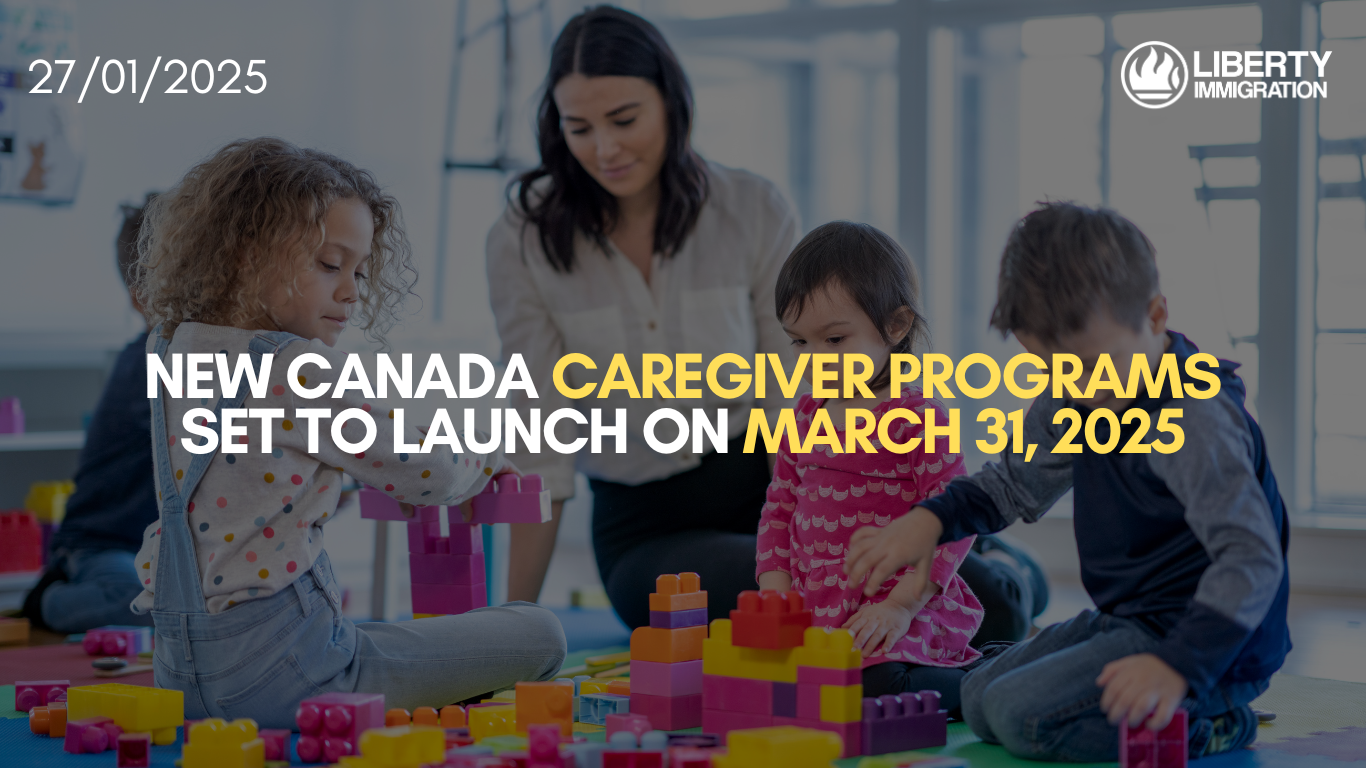New Canada Caregiver Programs Set to Launch on March 31, 2025

Canada’s latest caregiver immigration programs, known as the Home Care Worker Immigration Pilots, are set to launch on March 31, 2025, offering a streamlined pathway to permanent residency (PR) for eligible caregivers. These new programs will replace the Home Child Care Provider Pilot and Home Support Worker Pilot, which officially closed to applications on June 17, 2024.
The announcement, made by Marc Miller on June 3, 2024, highlights Canada’s efforts to address caregiver shortages while improving immigration pathways for skilled workers. Below, we explore the new programs’ expected quotas, enhanced features, eligibility criteria, and their potential impact.
Table of Contents
- Home Care Worker Immigration Pilots: Quota for 2025
- Enhanced Features and Streamlined Eligibility
- Importance of the New Caregiver Pilots
- Overview of Previous Caregiver Programs
- Application Process and Key Updates
- Impact on Canadian Families and Caregivers
- Challenges and Considerations
Home Care Worker Immigration Pilots: Quota for 2025
The total annual intake for caregiver applications under the previous pilot programs was capped at 5,500 in 2024. For 2025, Canada’s overall pilot program quotas, as outlined in the 2025 Immigration Levels Plan, will see a slight reduction from 10,920 in 2024 to 10,875 in 2025.
The new caregiver pilots are expected to maintain a similar allocation, with an estimated 4,000 to 5,000 applications accepted. Despite this marginal decrease, the revamped programs aim to provide a more efficient and transparent process for applicants.
Enhanced Features and Streamlined Eligibility
The Home Care Worker Immigration Pilots introduce several improvements designed to make immigration more accessible for caregivers. Key highlights include:
- Permanent Residency Upon Arrival: Caregivers will now receive PR status immediately upon arriving in Canada, eliminating the uncertainties and delays of prior pathways.
- Flexible Employment Options: Participants can secure roles in organizations offering part-time or temporary care services for individuals recovering from illness or requiring semi-independent assistance.
- Simplified Eligibility Criteria: Applicants must meet the following requirements:
- Achieve a minimum Canadian Language Benchmark (CLB) level of 4, equivalent to IELTS scores of 4.5 in listening, 4.0 in writing and speaking, and 3.5 in reading.
- Hold a Canadian high school diploma equivalent, verified through an Educational Credential Assessment (ECA).
- Demonstrate recent, relevant work experience.
- Secure a full-time job offer from a Canadian family or home care organization.
Importance of the New Caregiver Pilots
Canada’s aging population and growing demand for home care services have created an urgent need for skilled caregivers. The new pilots aim to:
- Provide a reliable immigration pathway for caregivers.
- Support Canadian families by ensuring access to high-quality home care.
- Attract skilled workers to bolster Canada’s economy and social infrastructure.
Overview of Previous Caregiver Programs
The launch of these new pilots comes after several earlier caregiver pathways were discontinued due to various challenges:
- Home Child Care Provider Pilot and Home Support Worker Pilot: Ceased on June 17, 2024.
- Live-in Caregiver Program (LCP): Closed to new applicants in 2014.
- Caring for Children Program and Caring for People with High Medical Needs Program: Both ended on June 18, 2019.
- Interim Pathway for Caregivers: A short-term program that concluded on October 8, 2019.
These programs faced issues such as long processing times and limited flexibility, which the new pilots aim to address.
Application Process and Key Updates
While Immigration, Refugees, and Citizenship Canada (IRCC) has yet to release full details on the application process, prospective applicants can prepare by:
- Gathering all required documentation, including proof of language proficiency, educational equivalency, and work experience.
- Monitoring IRCC updates for the official launch of application portals and additional criteria.
- Remaining cautious of misinformation or fraudulent services related to caregiver immigration pathways.
Impact on Canadian Families and Caregivers
The new caregiver pilots are expected to benefit both Canadian families and caregivers:
- For Families: Access to a stable workforce of skilled caregivers will ensure reliable and professional home care services.
- For Caregivers: The programs offer a clear and expedited path to PR, job security, and opportunities to integrate into Canadian society.
This initiative also supports family reunification for caregivers while fostering economic growth through their contributions to the workforce.
Challenges and Considerations
Despite the promising aspects, challenges remain:
- Processing Times: Historically, caregiver applications have faced delays, which may persist if IRCC does not address system inefficiencies.
- Quota Limitations: With fewer spots available, competition is expected to intensify, making it crucial for applicants to submit strong, well-prepared applications.
- Adaptation to New Policies: Both caregivers and employers will need to familiarize themselves with updated regulations and procedures.
To address these challenges, educational institutions and immigration consultants are preparing to provide language training, ECA support, and application assistance for caregivers.
Conclusion
The launch of the Home Care Worker Immigration Pilots on March 31, 2025, represents a significant step forward in Canadian immigration policy. By simplifying the PR process for caregivers, the programs aim to meet Canada’s growing demand for home care services while ensuring skilled workers have access to stable immigration pathways.
As the launch date approaches, caregivers, employers, and stakeholders will closely monitor updates from IRCC. These pilots have the potential to reshape the future of caregiving in Canada, offering opportunities for both workers and families to thrive.
Stay tuned for further details and guidelines from IRCC as the official launch date nears.



